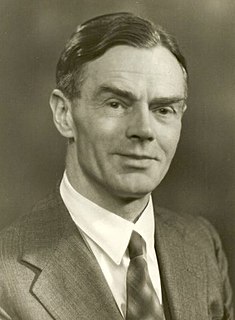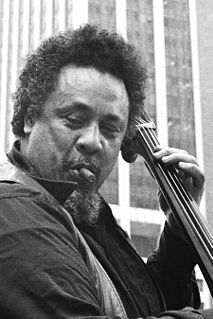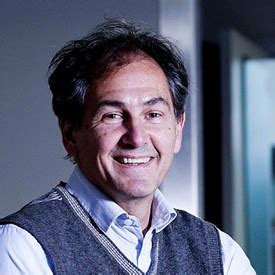A Quote by Jacob Bronowski
That series of inventions by which man from age to age has remade his environment is a different kind of evolution -- not biological, but cultural evolution . . . "The Ascent of Man.
Quote Topics
Related Quotes
But nature - that is, biological evolution - has not fitted man to any specific environment. On the contrary, ... he has a rather crude survival kit; and yet -this is the paradox of the human condition - one that fits him to all environments. Among the multitude of animals which scamper, fly, burrow and swim around us, man is the only one who is not locked into his environment. His imagination, his reason, his emotional subtlety and toughness, make it possible for him not to accept the environment but to change it.
It is essential for evolution to become the central core of any educational system, because it is evolution, in the broad sense, that links inorganic nature with life, and the stars with the earth, and matter with mind, and animals with man. Human history is a continuation of biological evolution in a different form.
Man has risen, not fallen. He can choose to develop his capacities as the highest animal and to try to rise still farther, or he can choose otherwise. The choice is his responsibility, and his alone. There is no automatism that will carry him upward without choice or effort and there is no trend solely in the right direction. Evolution has no purpose; man must supply this for himself. The means to gaining right ends involve both organic evolution and human evolution, but human choice as to what are the right ends must be based on human evolution.
The meaning that we are seeking in evolution is its meaning to us, to man. The ethics of evolution must be human ethics. It is one of the many unique qualities of man, the new sort of animal, that he is the only ethical animal. The ethical need and its fulfillment are also products of evolution, but they have been produced in man alone.
By contrast with history, evolution is an unconscious process. Another, and perhaps a better way of putting it would be to say that evolution is a natural process, history a human one.... Insofar as we treat man as a part of nature--for instance in a biological survey of evolution--we are precisely not treating him as a historical being. As a historically developing being, he is set over against nature, both as a knower and as a doer.
Public opinion contains all kinds of falsity and truth, but it takes a great man to find the truth in it. The great man of the age is the one who can put into words the will of his age, tell his age what its will is, and accomplish it. What he does is the heart and the essence of his age, he actualizes his age. The man who lacks sense enough to despise public opinion expressed in gossip will never do anything great.
Since the white man says he came from the evolution of animals, well, maybe the black man didn't. The white man has made so many errors in the handling of people that maybe he did come from a gorilla or a fish and crawl up on the sand and then into the trees. Of course, evolution doesn't take God into consideration. I don't think people learned to do all the things they do through evolution.
We started off with physical evolution and got our form. Then we somehow developed language, which meant cultural evolution could race so we could change our behavior really quickly instead of over hundreds and hundreds of years. And then comes moral evolution, which means we're not frightfully far along with people. And maybe we end up with a spiritual evolution, which is this connectedness with the rest of the life forms on the planet.
The story of 'Mirror Mirror' is in many ways a story about evolution. It's about the evolution of a child into an adult. It's about the evolution of those dwarves into something a little less rock-like, a little more humanoid. It's about the evolution of history, too, from the darkness of the Middle Ages into the light of the Age of Reason.
The story of Mirror Mirror is in many ways a story about evolution. Its about the evolution of a child into an adult. Its about the evolution of those dwarves into something a little less rock-like, a little more humanoid. Its about the evolution of history, too, from the darkness of the Middle Ages into the light of the Age of Reason.
Evolution explains our biological evolution, but human beings are very unique creatures. As the Dobzhansky said, all animals are unique; humans are the uniquest. And that uniqueness of being human, language, art, culture, our dependency on culture for survival, comes from the combination of traditional biological evolution.
I think the driving force for cultural evolution is this desire for groups to be splitting off and separating and forming subgroups insofar as the environment will allow it. We see great cultural diversity and large numbers of cultures per unit area in regions of the world in which the environment is really rich.
































